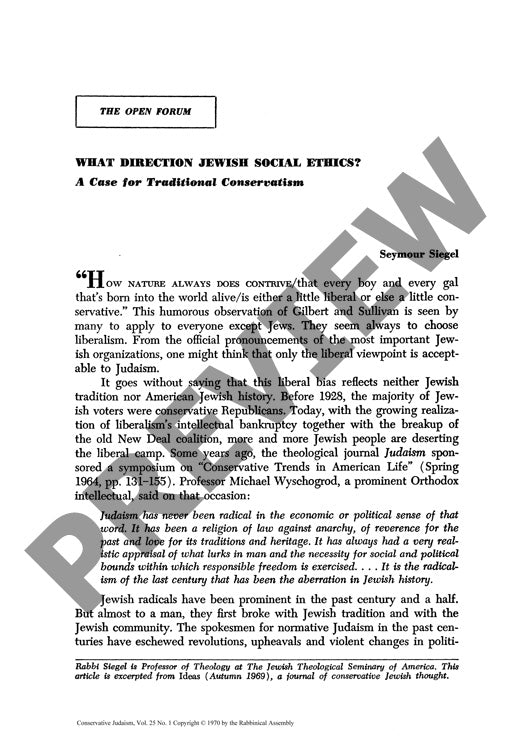What Direction Jewish Social Ethics a Ca
Couldn't load pickup availability
Jewish political thought has long championed decentralized authority, respect for legitimate governance, and equal application of law - principles more aligned with conservative than liberal philosophy. Through analysis of biblical narratives, Talmudic teachings, and rabbinic commentary, a clear pattern emerges: traditional Judaism emphasized gradual reform over revolutionary change while viewing human nature as inherently flawed and requiring institutional restraints. The methodology involves systematic examination of key Jewish texts to establish precedent for conservative social positions. Historical evidence reveals that prior to 1928, most Jewish voters identified as conservative Republicans, suggesting that contemporary Jewish liberalism represents a departure from authentic tradition. Critical distinctions emerge between messianism, which motivates responsible social action within historical limitations, and utopianism, which promises unrealistic societal transformation. The Jewish minority experience has historically led to resistance against totalitarian centralization of power, fostering support for pluralism while opposing social engineering schemes that ignore human limitations and traditional legal frameworks. These findings challenge the prevailing liberal orientation of contemporary Jewish organizations and demonstrate Judaism's fundamental compatibility with conservative political philosophy.

More Information
-
Physical Description
-
Publication Information
Published 1970
ISBN
-
Publication Credits
Seymour Siegel

